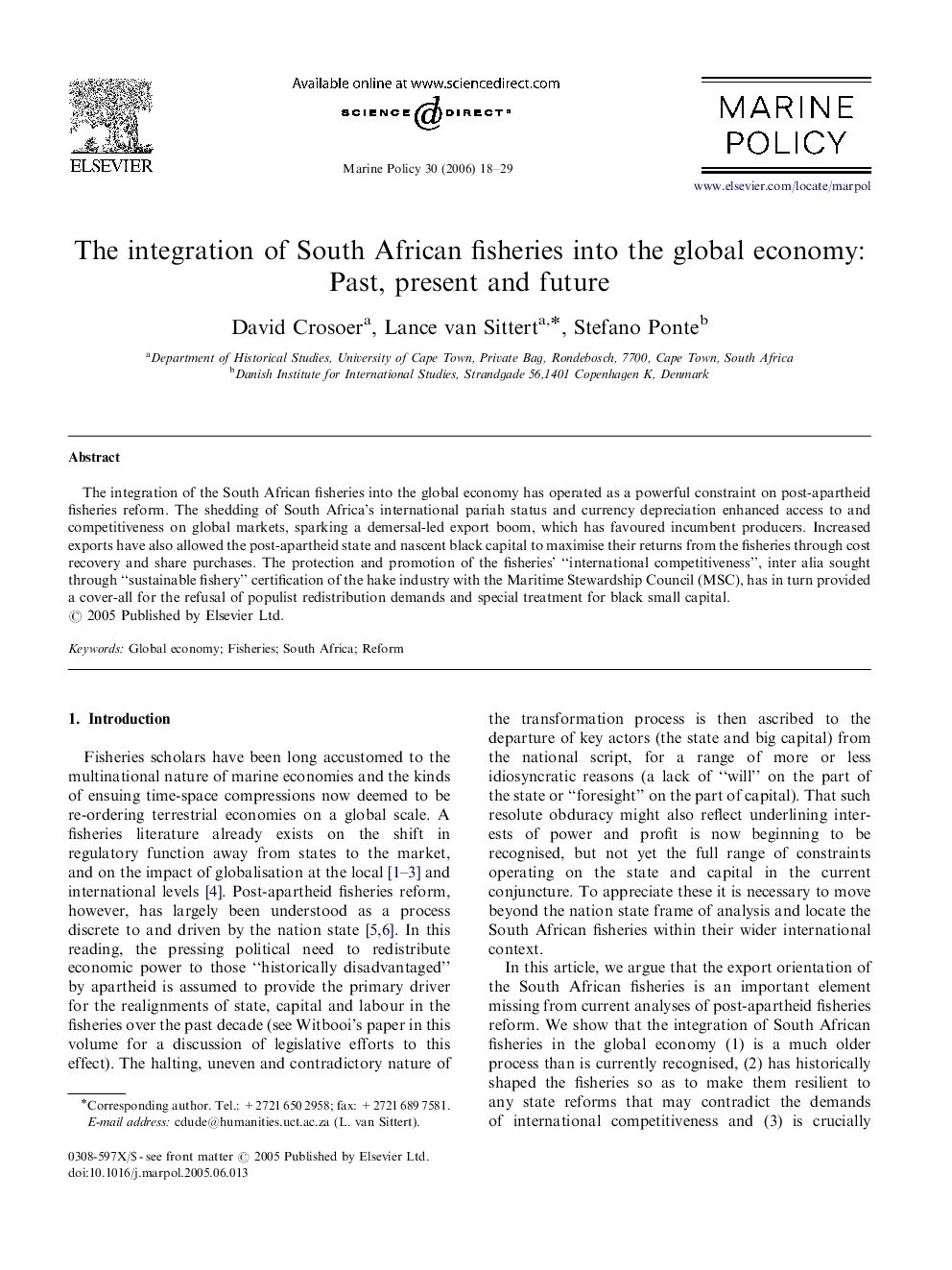| کد مقاله | کد نشریه | سال انتشار | مقاله انگلیسی | نسخه تمام متن |
|---|---|---|---|---|
| 1061309 | 947669 | 2006 | 12 صفحه PDF | دانلود رایگان |

The integration of the South African fisheries into the global economy has operated as a powerful constraint on post-apartheid fisheries reform. The shedding of South Africa's international pariah status and currency depreciation enhanced access to and competitiveness on global markets, sparking a demersal-led export boom, which has favoured incumbent producers. Increased exports have also allowed the post-apartheid state and nascent black capital to maximise their returns from the fisheries through cost recovery and share purchases. The protection and promotion of the fisheries’ “international competitiveness”, inter alia sought through “sustainable fishery” certification of the hake industry with the Maritime Stewardship Council (MSC), has in turn provided a cover-all for the refusal of populist redistribution demands and special treatment for black small capital.
Journal: Marine Policy - Volume 30, Issue 1, January 2006, Pages 18–29